What does the king of England do, exactly? A lot more than you might think, considering he doesn't actually rule the country.
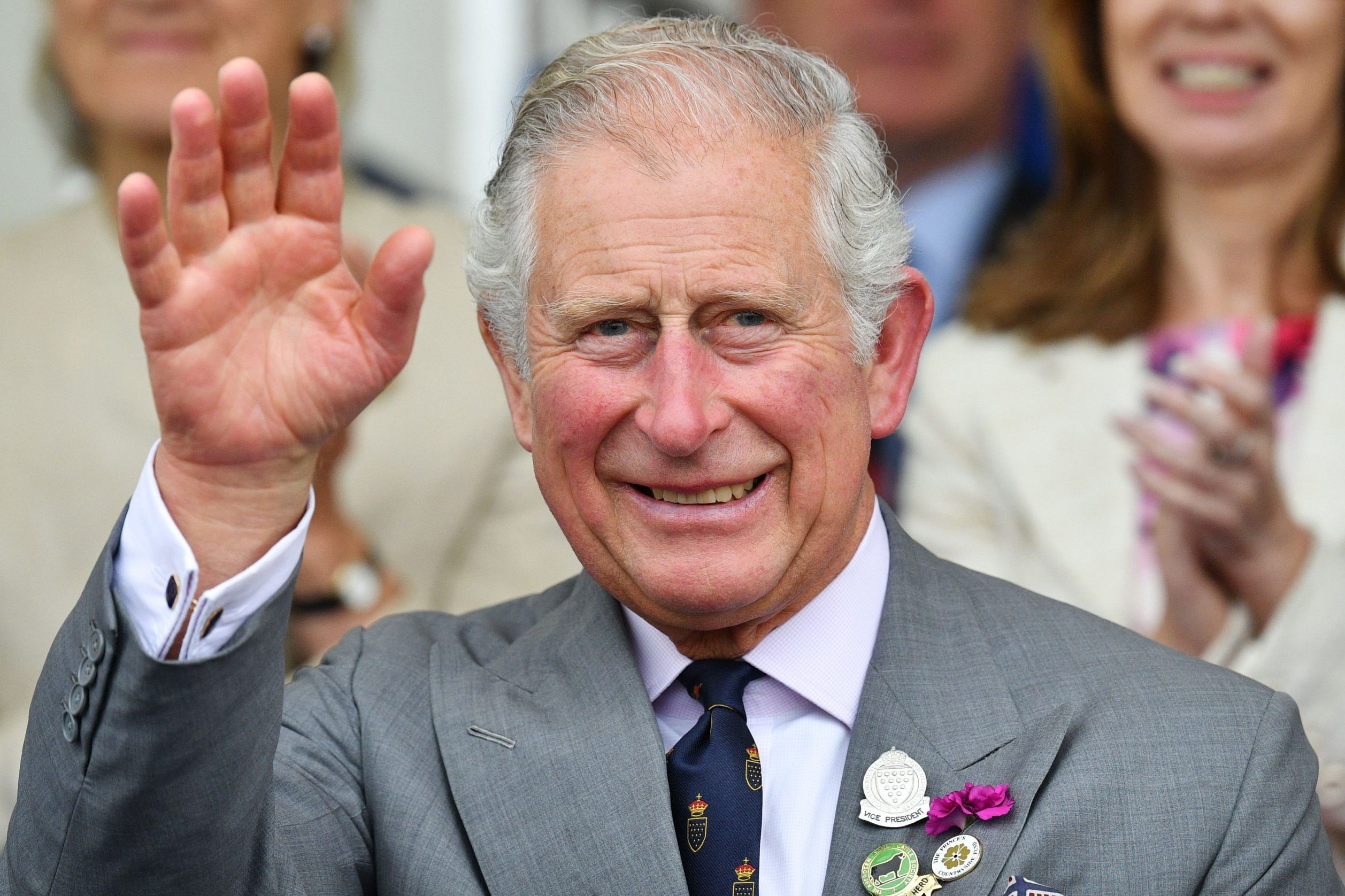
What Does the King of England Do? 28 of King Charles’s Jobs

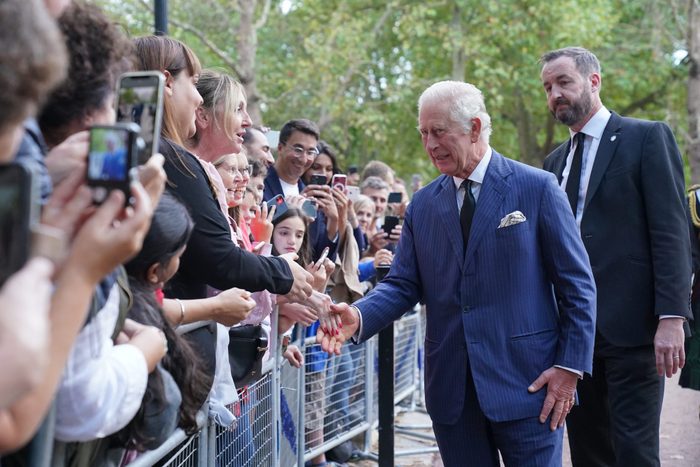
Serve as king of England and the commonwealth
If you thought Charles was just the king of England, think again. He’s also the king of the U.K.’s Scotland, Wales and Northern Ireland. As for the 14 other Commonwealth realms, including far-flung places like Jamaica, Australia, Antigua and more? Yep, he’s got a royal role there too. According to the House of Commons library, his exact title and duties vary by country, but they are largely ceremonial.
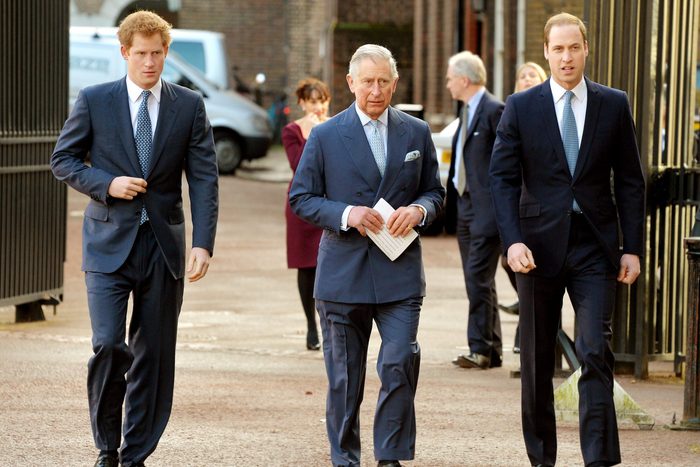
Accept—or abdicate—the throne
The crown is a choice for the king. If he wanted to, Charles could have taken a page from the book of his great-uncle King Edward VIII and opted to abdicate.
But while he can choose to rule or not, he can’t appoint someone (called a regent) to rule for him. That only happens when a monarch is incapacitated, and it’s a highly unusual circumstance. The last regency was during the reign of King George III, who lost his sight and sanity to illness in the early 1800s.
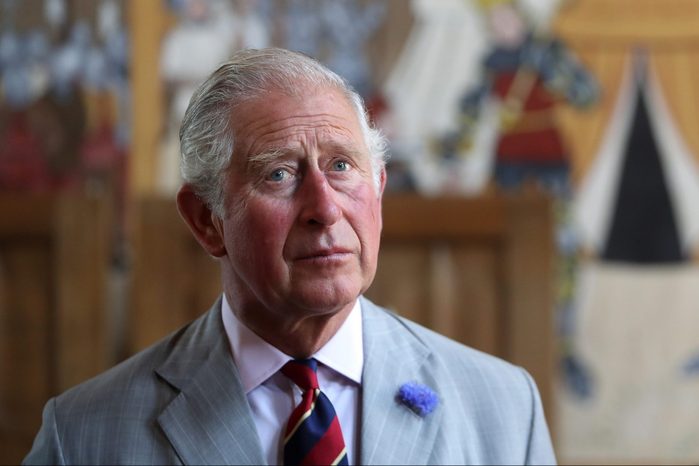
Serve as head of the Commonwealth of Nations
The king is a unifying force in his role as head of the Commonwealth of Nations, a voluntary association of more than 50 independent countries. Most of the members are under British rule (like the Commonwealth realms) or were at some point in the past (such as India, Pakistan and Barbados). Others, including Rwanda and Mozambique, joined the commonwealth despite having no historical ties to the monarchy.
The goal of the association is to foster cooperation among member nations and to advance their economic and social interests. What does the king of England do to that end? He meets every two years with member nation heads of government to discuss issues, assign priorities and enact policy.
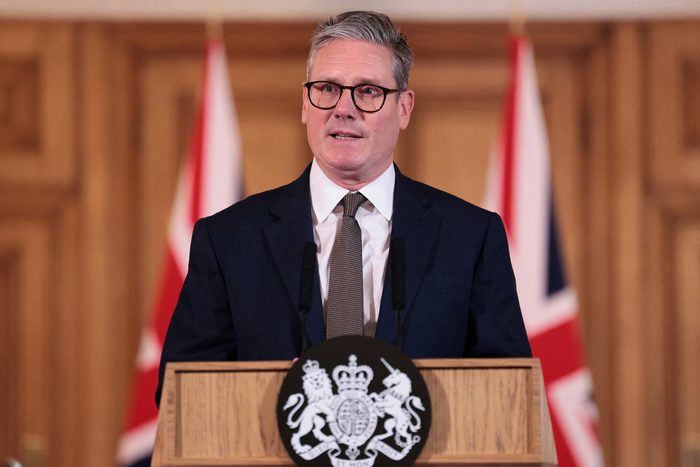
Appoint the prime minister
It’s not entirely accurate to say the monarch picks the prime minister, the highest-ranking official in the British government. But the sovereign does have the responsibility of officially appointing the PM. In most cases, this means appointing the leader of the party that won a majority of seats in parliament’s House of Commons during the most recent general elections, even if it’s not the monarch’s personal preference.
“There are rumors that the late queen was not a fan of Boris Johnson, but when he won the election, she had to accept him anyway,” Lloyd says. “Officially, the monarch does not have political power or the ability to influence politics.” They are expected to follow the Cabinet Manual, a formal set of rules that outlines the roles of government and limits the monarchy’s influence in modern politics.
In special circumstances, such as when a prime minister dies or resigns while in office, a monarch could be called upon to select a new prime minister.
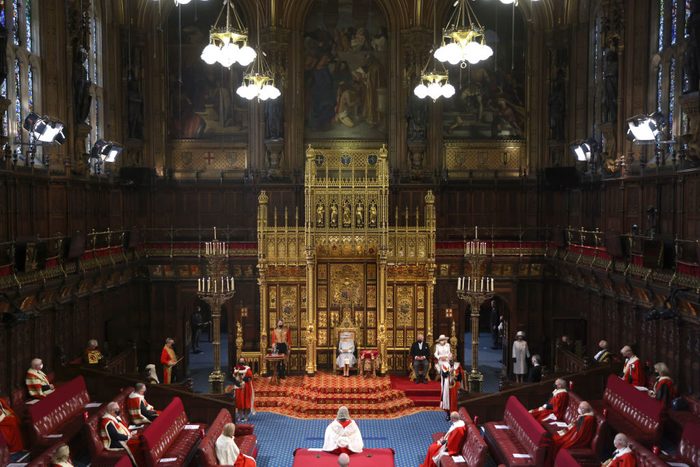
Appoint members to the House of Lords
The House of Lords is another of parliament’s three branches (the king or queen is the third, ceremonial, branch). Members are appointed by the monarch on the advice of the prime minister. Together with the House of Commons, the House of Lords is tasked with all matters related to lawmaking, so appointees are expected to be knowledgeable and experienced with U.K. business, culture, science, sports, academia, law, education, health and public service.
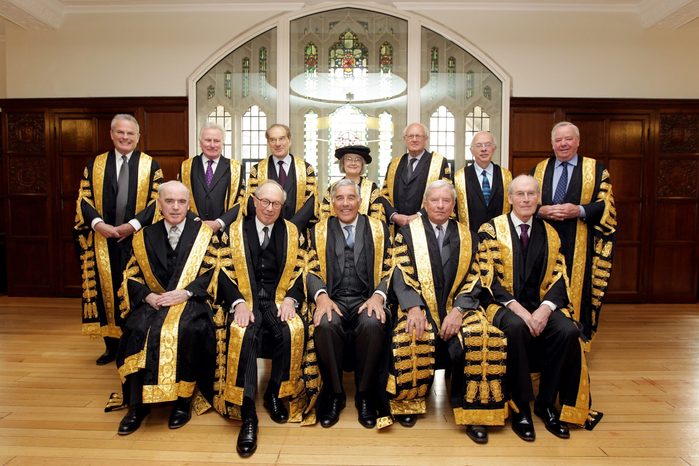
Appoint Supreme Court justices
The Supreme Court is the highest court in the U.K. Like the U.S. version, the U.K. Supreme Court has the final say on all legal matters that come before it, including how laws should be interpreted and whether a law should be stricken from the books by parliament. Choosing the justices who make those decisions is an important responsibility that rests with the king. But he doesn’t do it alone, instead relying on the advice and recommendation of a panel of legal experts from each of the U.K. nations.
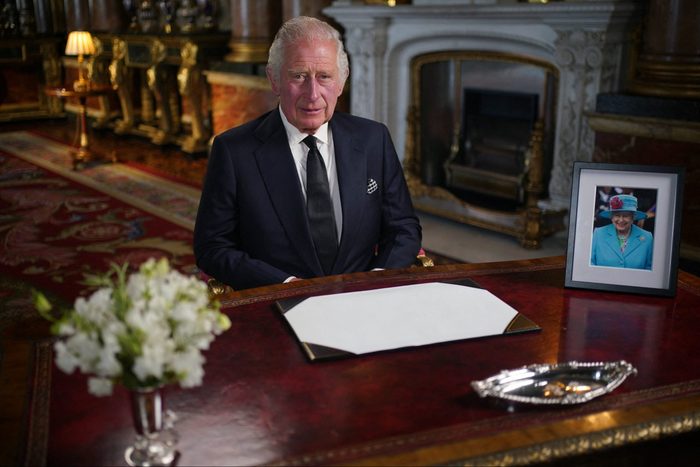
Initiate the process of “forming a government”
Even if the monarch has an often ceremonial role, King Charles and parliament are tightly intertwined. “When prime ministers are elected, the king meets with them and invites them to form a new government,” Lloyd says. This meeting is known as “the kissing of hands.”
Without the formation of a government, parliament can’t conduct its business. In fact, government doesn’t even exist until it’s officially formed. Assuming the potential prime minister agrees, the new appointee can begin work immediately.
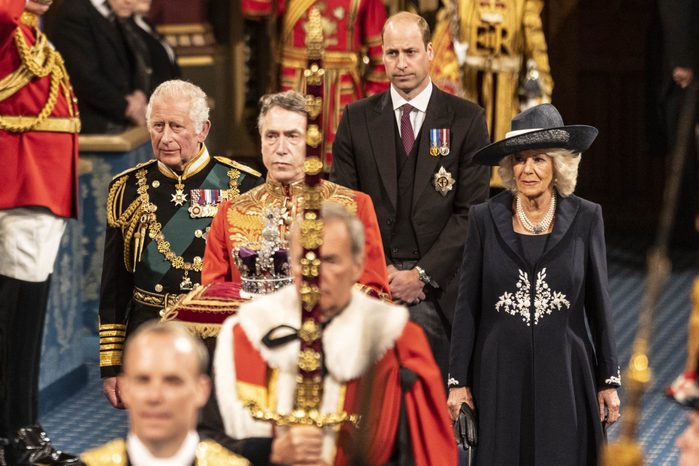
Open parliament each year
In keeping with royal tradition, the monarch opens parliament for its lawmaking session each year. Lloyd says this is one of the most public duties of the king, and monarchs are known to keep up the tradition of dressing for the occasion.
“In 2024, the king wore royal regalia and the Imperial State Crown, which is used for occasions like this,” Lloyd says. “In her later years, Queen Elizabeth II sometimes did not wear the heavy crown but still had it placed near her.”
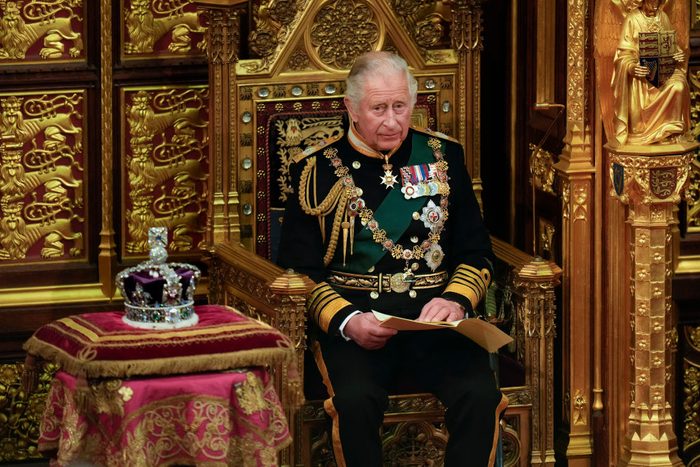
Kick off parliamentary business
Before parliament can get down to business, the king must make a speech. This speech is always written by members of parliament, and it’s used as a starting point for discussion and debate.
But isn’t the king supposed to be apolitical? Yes. Even though Charles is the head of state, he is not the head of the government. “The king is not allowed to influence policies or laws,” Lloyd says. “He cannot engage in government business, and cannot take action independently of parliament and the prime minister.”
But, the law says nothing about giving speeches, so while the words he recites are political, it’s understood that they’re not his words. He’s simply reading the speech!
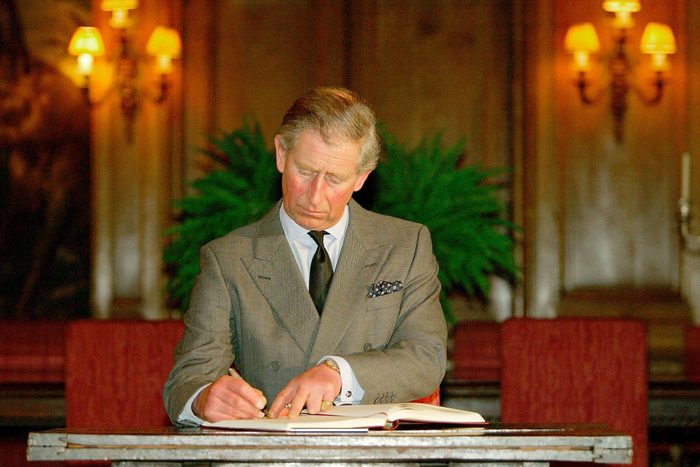
Legitimize laws
Parliament may have the power to make, change and abolish laws, but the king must sign off on a proposed act of parliament before it officially goes into effect. This process is known as “royal assent.”
While the king is required to remain politically neutral, it is within his prerogative to put the kibosh on a potential law. Still, no British sovereign has refused to give royal assent to an act of parliament since 1708. And most monarchs, including the late Queen Elizabeth, don’t even show up in person to give royal assent. (The last to do so was Queen Victoria in 1854.)
These days, “King Charles receives a ‘red box’ each day filled with dispatches and government business that require his signature,” Lloyd says.
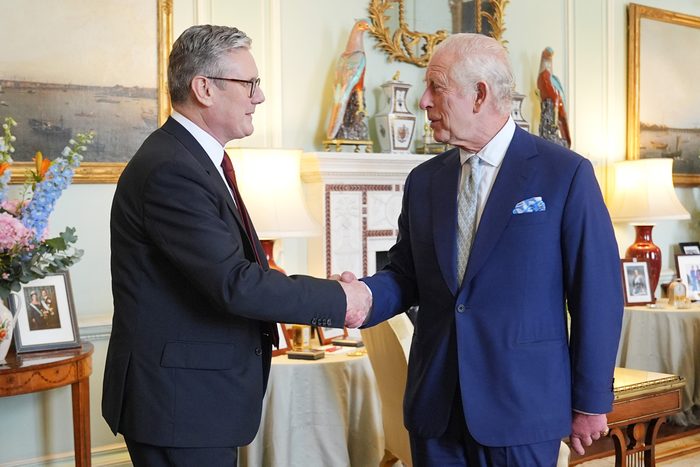
Summon the prime minister
One of the king’s responsibilities is to stay abreast of what’s going on in the government. To do so, he can exercise his power to summon the prime minister for a meeting (or, as the royals would say, an “audience”). During these meetings, he has both a right and a duty to express his opinions on government matters.
“He typically meets weekly with the prime minister in closed-door meetings, to discuss whatever the two consider important,” Lloyd says. “There are no official records of those meetings,” which allows the king to maintain his political neutrality. The audience is considered private, and all communications remain confidential. Moreover, after having expressed his views, the king abides by the advice of his ministers.
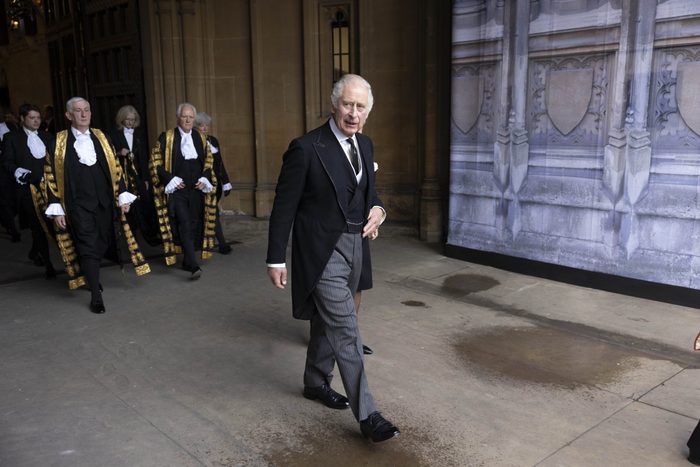
End the parliamentary session
It is also within the king’s royal prerogative to end the current session of parliament. This is separate from the dissolution of parliament, which refers to the formal closing of the session. Until the Fixed Term Parliament Act of 2011, it was also within the king’s power to dissolve parliament. But this was a very rare occurrence; the last monarch to do this was Queen Victoria in 1830.
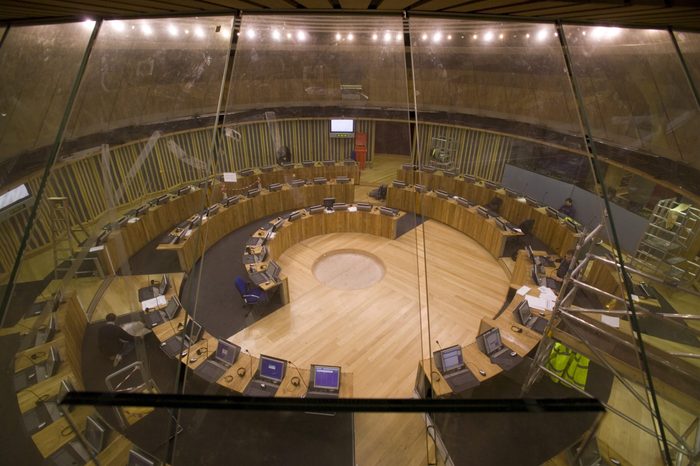
Open Welsh lawmaking sessions
Since 1999, Wales has had its own form of elected government, known as the National Assembly of Wales, which introduces legislation concerning matters delegated from the U.K. parliament. These include matters of health, housing, tourism, the environment and agriculture. As with the U.K. parliament, the king is empowered to open the national assembly each session.
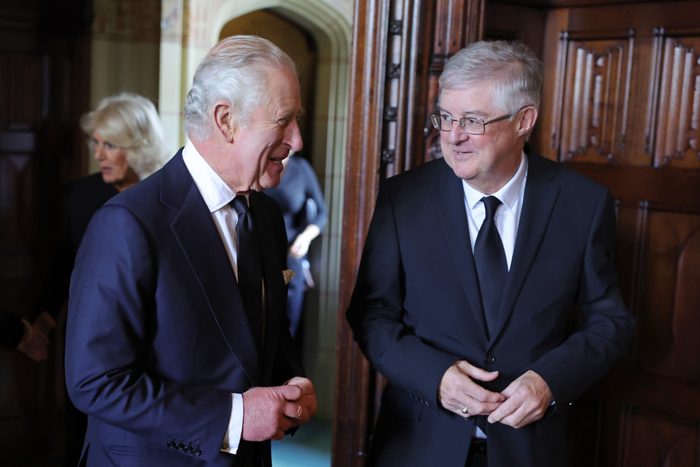
Ratify Welsh legislation
Starting in 2007, Queen Elizabeth was responsible for formally appointing ministers of Wales’s National Assembly, including the first minister or highest-ranking member. She was also tasked with granting royal assent to formal acts of the National Assembly. (In other words, she confirmed bills into law.)
Charles took over these duties after the queen’s death. When dealing with matters of Wales, Charles acts on the advice provided by U.K. ministers, like Elizabeth did before him.
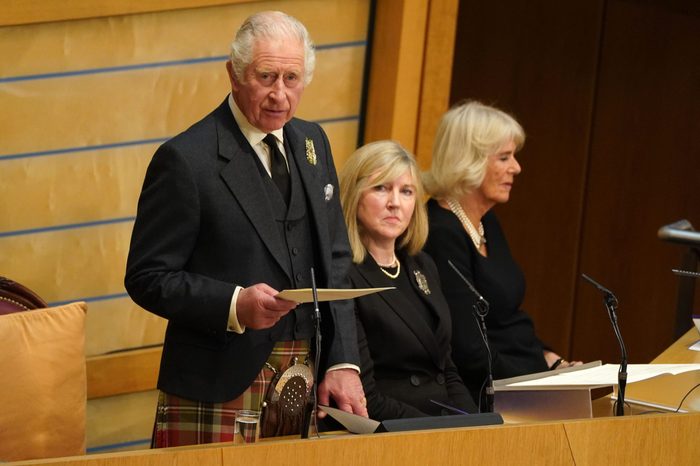
Open Scotland’s parliamentary session
From 1707 to 1999, all Scottish lawmaking was in the hands of the U.K. parliament. But on the cusp of the new millennium, Scotland convened a separate Scottish parliament. Since then, the Edinburgh-based Scottish parliament has dealt with domestic matters, while the U.K. parliament has dealt with issues pertaining to the U.K. as a whole. But the king is still responsible for opening the session of the Scottish parliament, just as he’s charged with opening the U.K. parliament and the Welsh National Assembly.
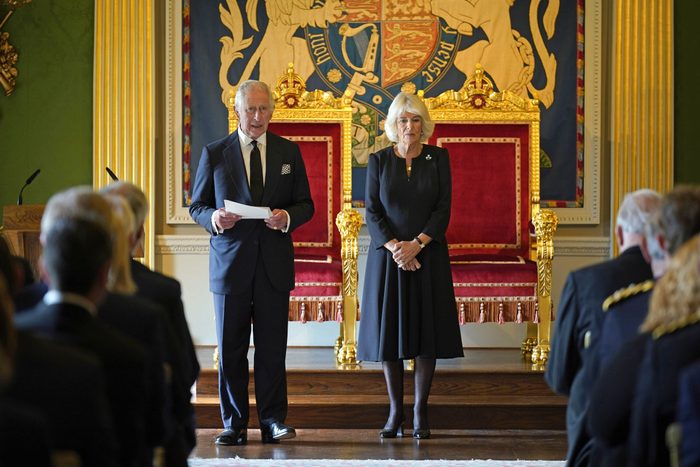
Ratify the laws of Northern Ireland
The Northern Ireland Assembly has been around since 1998, and like the local governments of Wales and Scotland, it’s the main source of authority concerning all Irish lawmaking matters. So what does King Charles do here? Just like Elizabeth before him, Charles is tasked with opening the annual lawmaking session and providing royal assent to all legislation passed by the governing body.
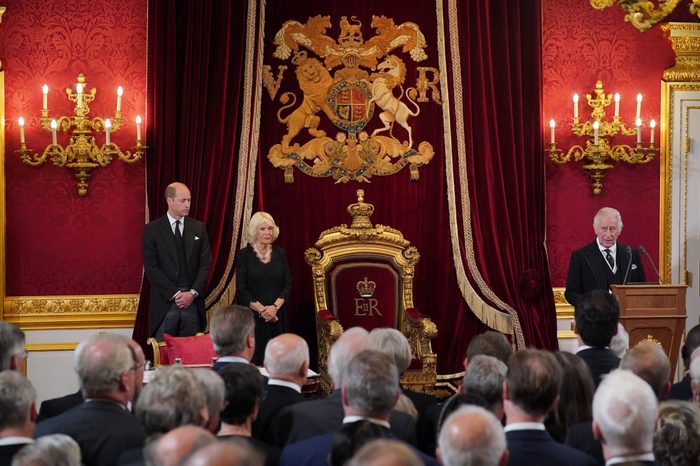
Appoint the members of Privy Council
The U.K. Privy Council is responsible for several executive responsibilities, including extending legislation to British territories overseas, granting royal charters and issuing orders and proclamations. It also advises the king on his duties, including how to exercise his royal prerogative. Members of the Privy Council are appointed by the king, although he takes the advice of the prime minister.
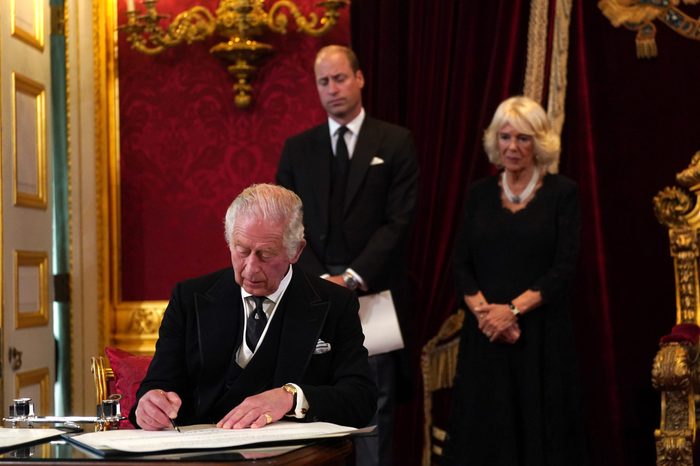
Approve Privy Council orders and proclamations
Privy Council meetings are held once a month at the discretion of the king. At that time, members must obtain the king’s royal assent to orders the council has discussed and approved. The king also needs to approve the council’s proclamations, which are formal notices concerning issues like the dates of bank holidays and the summoning of a new parliament.
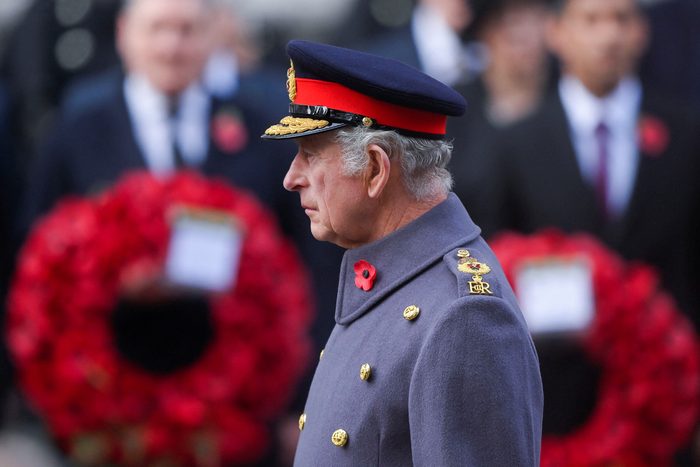
Demonstrate goodwill and influence morale
The ceremonial roles of the U.K. monarch also include extending expressions of gratitude, hospitality, goodwill and other issues of national morale. “The king or one of his representatives carries out the bestowal of titles and honors on volunteers and others who perform exemplary service for the U.K.,” Lloyd says. “He also leads Remembrance Day ceremonies and hosts world leaders during state visits to the U.K.”
According to Lloyd, one of the greatest examples of how the monarchy publicly expresses thanks, leads by example and influences morale was seen during Elizabeth’s reign. During the COVID-19 pandemic, “the queen delivered a televised message, praising the work of the National Health Service and other care workers,” Lloyd says. “She also thanked members of the public for staying home to help contain the virus, and she urged people to care for each other.”
When her husband Prince Philip died a few months later, photos of the queen at the funeral showed her seated away from others—setting an example of respecting the pandemic restrictions, Lloyd says. This was in stark contrast to the news of Boris Johnson flouting restrictions and holding parties the night before. “The photograph of the queen sitting at the service alone was a powerful rebuke,” Lloyd says, “and likely contributed to Johnson’s downfall and resignation.”
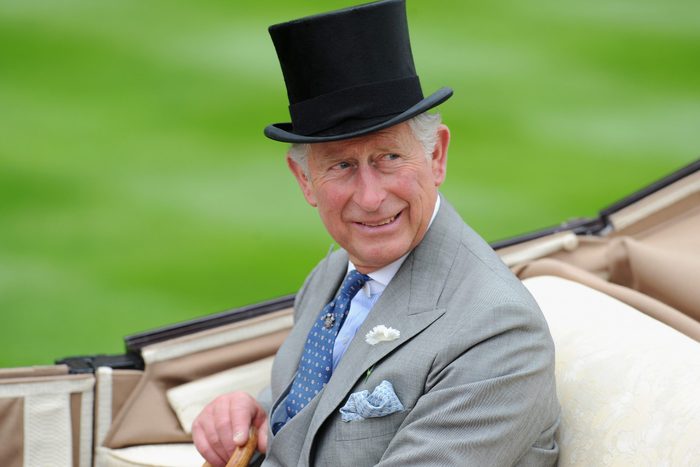
Break the law without prosecution
This is more a privilege than a duty, but “sovereign immunity” from prosecution is a real thing. British common law once held that the sovereign was divinely appointed and not capable of wrongdoing. In the 15th century, the chaos of the Wars of the Roses started to change things, demonstrating a “diminishing belief that an anointed and crowned king had been chosen by God to rule,” Lloyd says.
But to this day, British legal cases are filed in the name of the king (or queen). When a legal proceeding is labeled “the king vs. the defendant,” the implication is that the king cannot take legal action against himself. The royal family’s official website confirms this, noting that under U.K. law, civil and criminal proceedings cannot be taken against the sovereign as a person.

Pardon criminals
A British sovereign’s right to pardon convicted criminals has long been known as the “royal prerogative of mercy.” Originally intended to stop an execution, the royal pardon is rarely used in the modern-day U.K., where the death penalty was abolished in 1998.
The king may use this royal prerogative of mercy for other special circumstances, such as reducing an inmate’s prison sentence. Another modern-day example: In 2013, Queen Elizabeth granted a posthumous pardon to World War II code-breaker Alan Turing, who had received an indecency conviction in 1952.
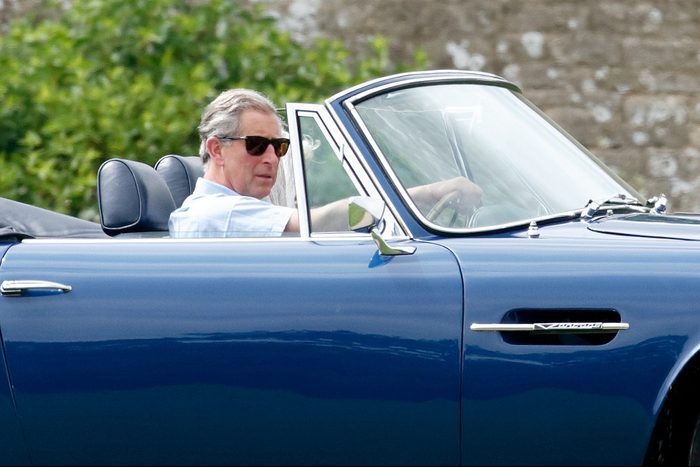
Drive without a license
Like Elizabeth before him, Charles can now freely cruise around without a license. Seems like an odd exemption, right? Well, technically speaking, all driver’s licenses are issued in the king’s name—so there would be no need to approve his own license! Similarly, the king is not required to display a license plate on his state car.
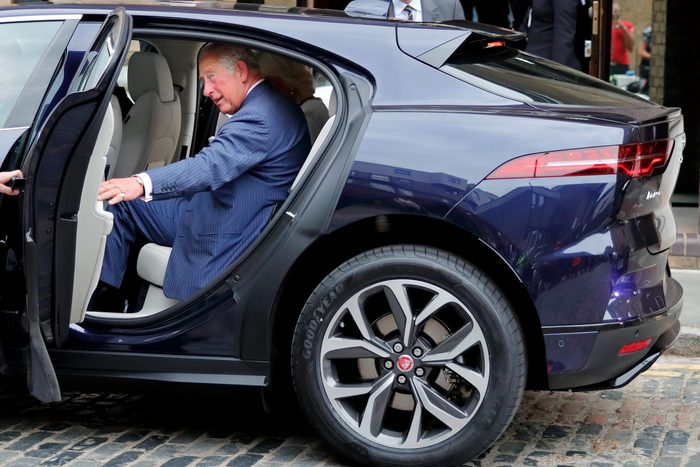
Exceed the speed limit
In a hurry? Too bad you’re not riding alongside Charles, who won’t be ticketed regardless of his speed. British speed limits don’t apply to vehicles used by law enforcement, fire and rescue, and other emergency services—when abiding by the speed limits could prevent them from doing their jobs.
Although the royal family doesn’t necessarily need to rush, they are driven around by the police. So their driver is exempt from speed-related laws.
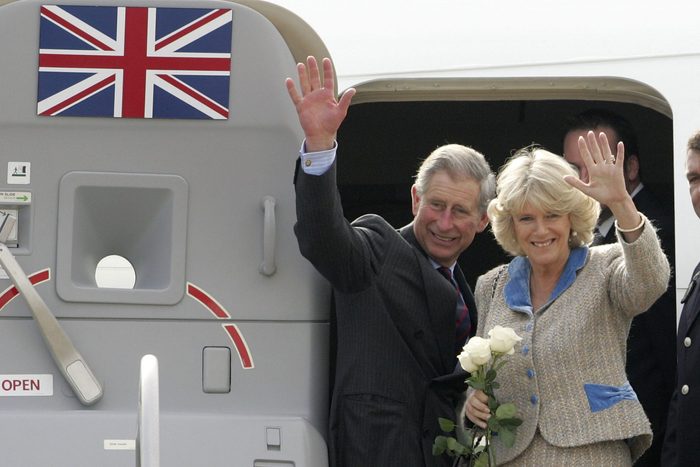
Travel without a passport
Another privilege of being the king of England? No need to carry a passport. According to the official website of the royal family, British passports are now issued in the king’s name, so Charles is not required to carry one when he travels. However, this privilege is not extended to the rest of the family. All other royals, including William and Kate, have passports. Fun fact: Charles also has the power to withdraw passports if he chooses.
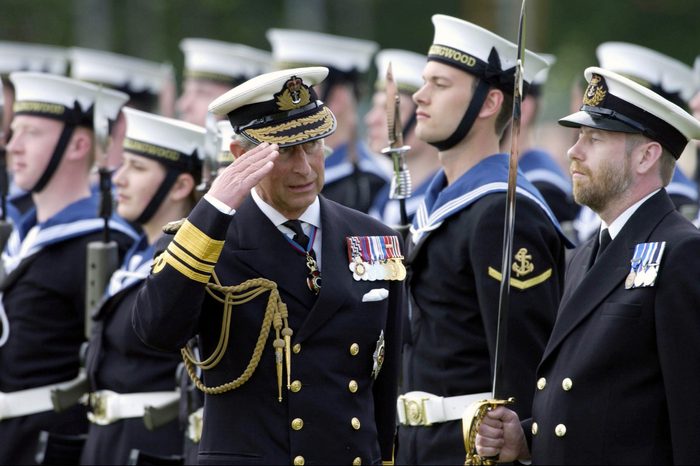
Command the armed forces
As the sovereign, Charles is head of the armed forces. And his family has a legacy of service. Charles served in the Royal Air Force and the Royal Navy, and his mother joined the Auxiliary Territorial Service in 1945, making Elizabeth the first female member of the royal family to do so. His father, Prince Philip, was a Royal Navy officer, and both of his sons served—William in the Royal Air Force and Royal Navy, and Harry in the British Army.
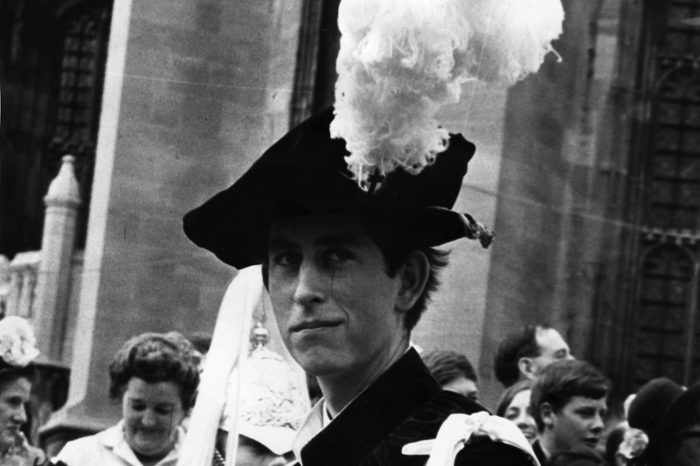
Grant knighthoods
It’s a millennia-old tradition for the British monarch to give gifts to those who have shown great service, loyalty or gallantry. At one time, the gifts were physical, such as money or land. Today, they are in the form of official honors, including knighthoods and peerages.
Anyone can nominate people for these honors, but they must be approved by the king (or queen). The prime minister is tasked with making recommendations to the king, and before the approval is formalized, the proposed honoree must accept.
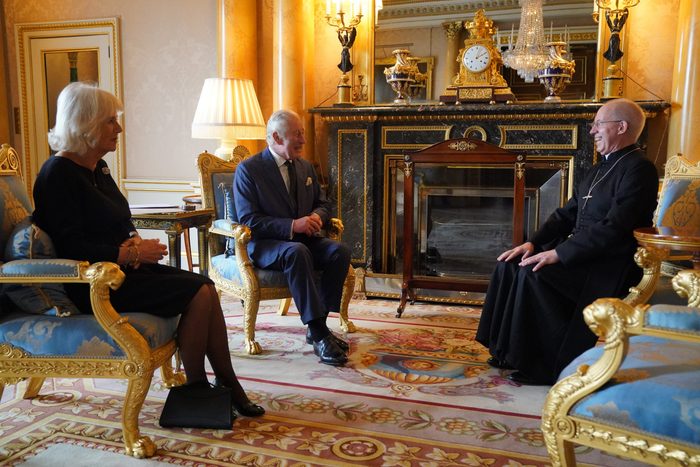
Appoint archbishops and bishops to the Church of England
Charles’s official title is “Charles the Third, by the Grace of God, of the United Kingdom of Great Britain and Northern Ireland and of His other Realms and Territories, King, Head of the Commonwealth, Defender of the Faith.”
That last bit—defender of the faith—references the king’s role as the head of the Church of England. The British sovereign has been the head of the church since 1534, when Henry VIII’s divorce drama led to his renouncing the Catholic church. As head of the church today, the king appoints archbishops, bishops and deans, but like so many other responsibilities, his picks are at the advice of the prime minister.
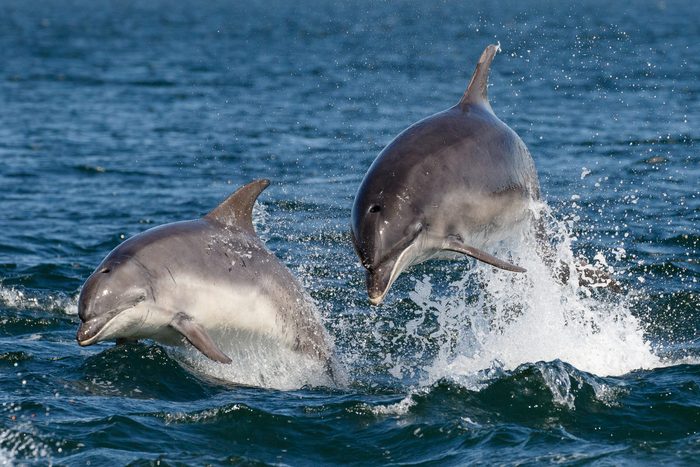
Own all the dolphins in the United Kingdom
What does the king of England have to do with dolphins? Not much! But a bizarre statute from 1324 grants him ownership of all “royal fish” found in U.K. waters, which are considered to be whales, porpoises, dolphins and sturgeons. The law still exists today. And if you think that’s quite enough wildlife for the king, you’ll be chuffed to learn he now owns the swans in the Thames too.
About the expert
|
Why trust us
Reader’s Digest has published hundreds of stories on the British royal family, providing a behind-the-scenes look at the fascinating facets of the monarchy. We regularly cover topics including the latest royal news, the history and meaning behind time-honored traditions, and the everyday quirks of everyone’s favorite family members, from Queen Elizabeth’s daily snack to Prince William’s confessions about his home life. We’re committed to producing high-quality content by writers with expertise and experience in their field in consultation with relevant, qualified experts. We rely on reputable primary sources, including government and professional organizations and academic institutions as well as our writers’ personal experiences where appropriate. We verify all facts and data, back them with credible sourcing and revisit them over time to ensure they remain accurate and up to date. Read more about our team, our contributors and our editorial policies.
Sources:
- Carol Ann Lloyd, British historian and author; interviewed, April 2025
- BBC: “King Charles III, the UK’s Monarch”
- BBC: “What is the UK Supreme Court?”
- British Institute of Human Rights: “Abolition of the Death Penalty”
- House of Commons Library: “The Royal Prerogative and Ministerial Advice”
- National Archives: “Regency Act 1937”
- NI Direct: “The Northern Ireland Assembly”
- Royal Family: “The King”
- Scottish Parliament: “About the Scottish Parliament”
- Treatise on the Fishery Laws of the United Kingdom: “Crown’s Right to Royal Fish”




















